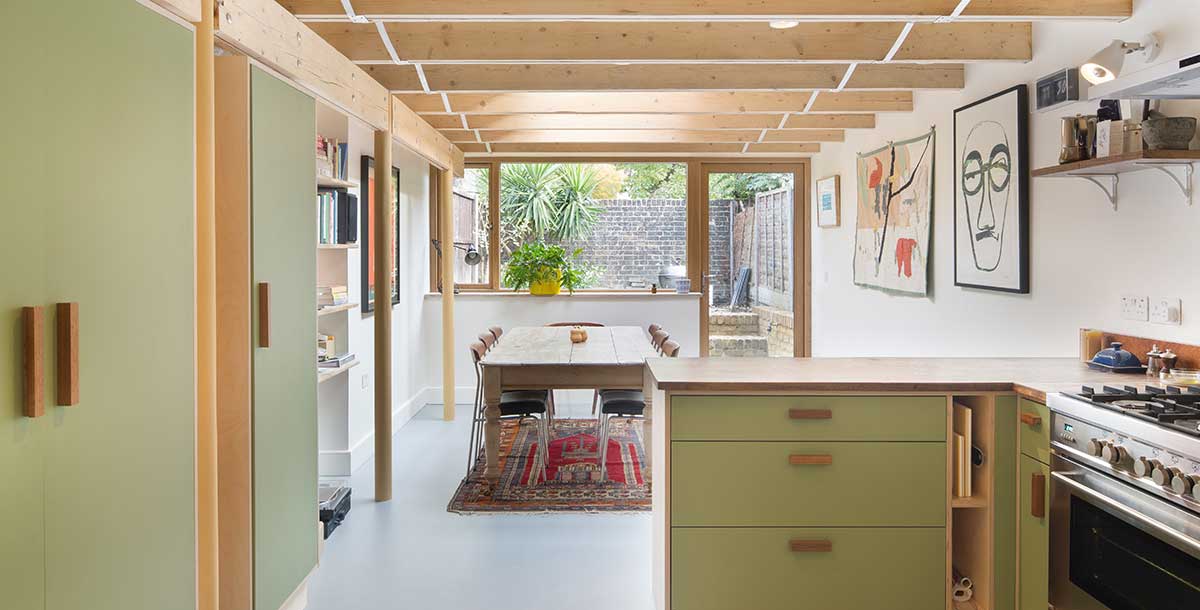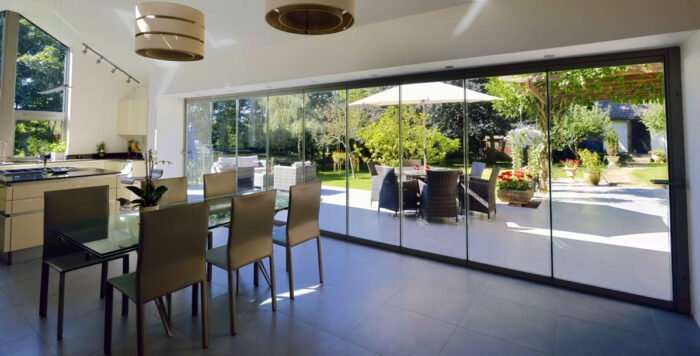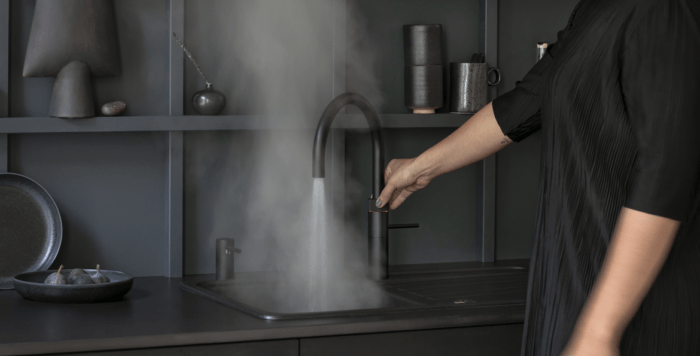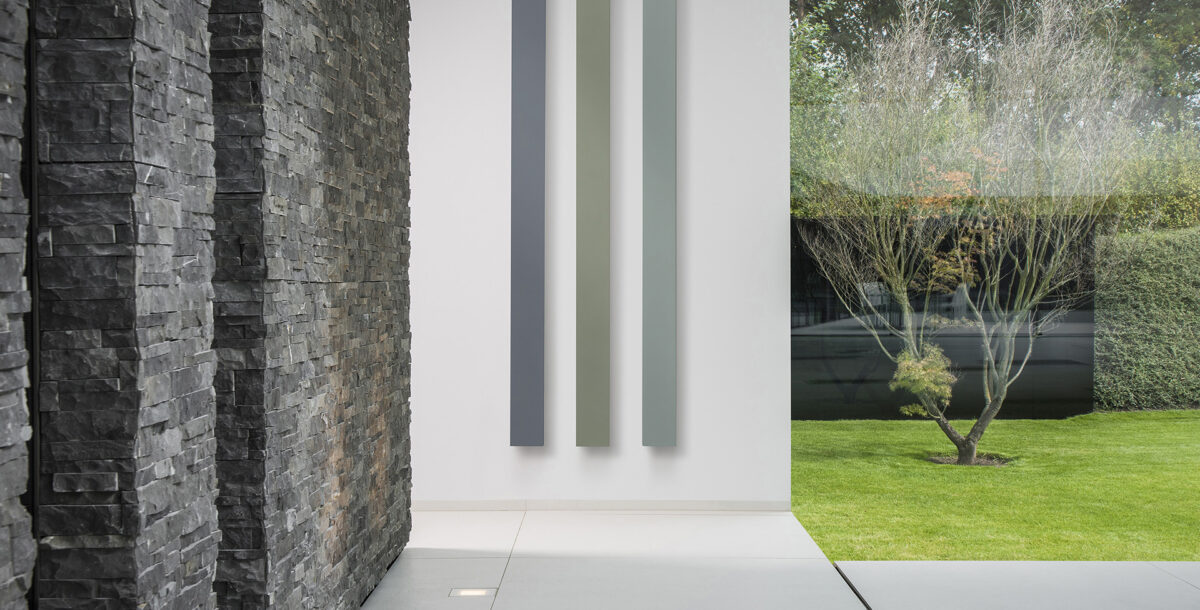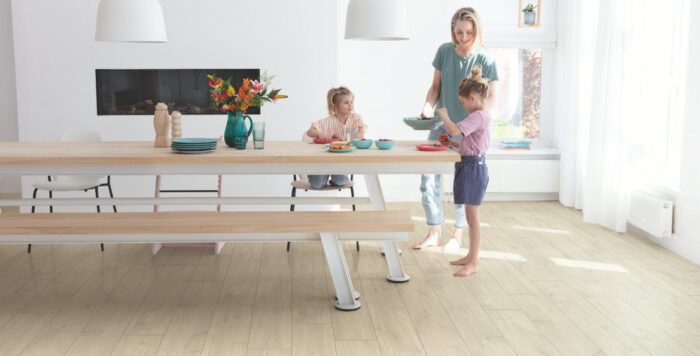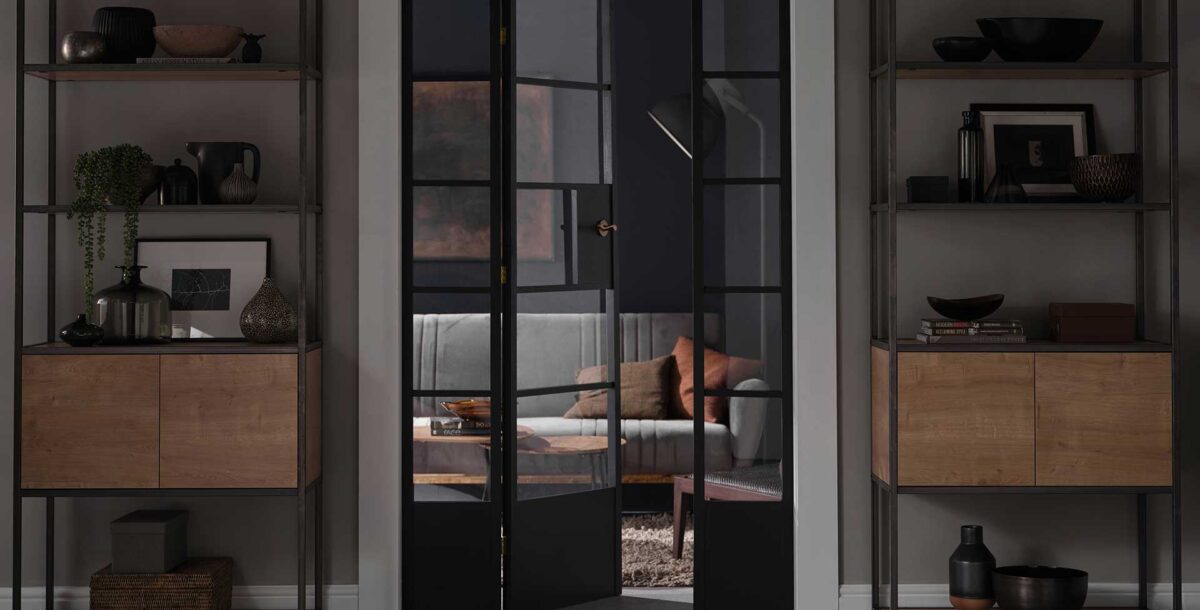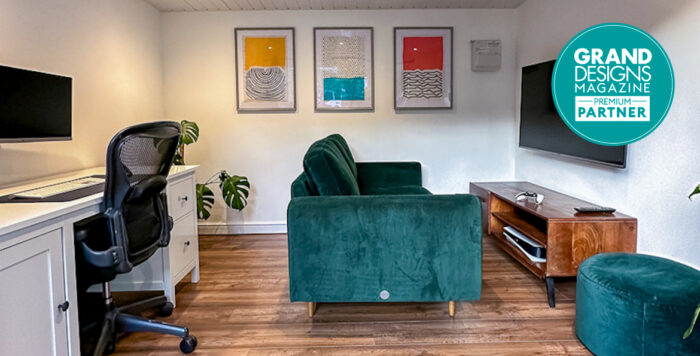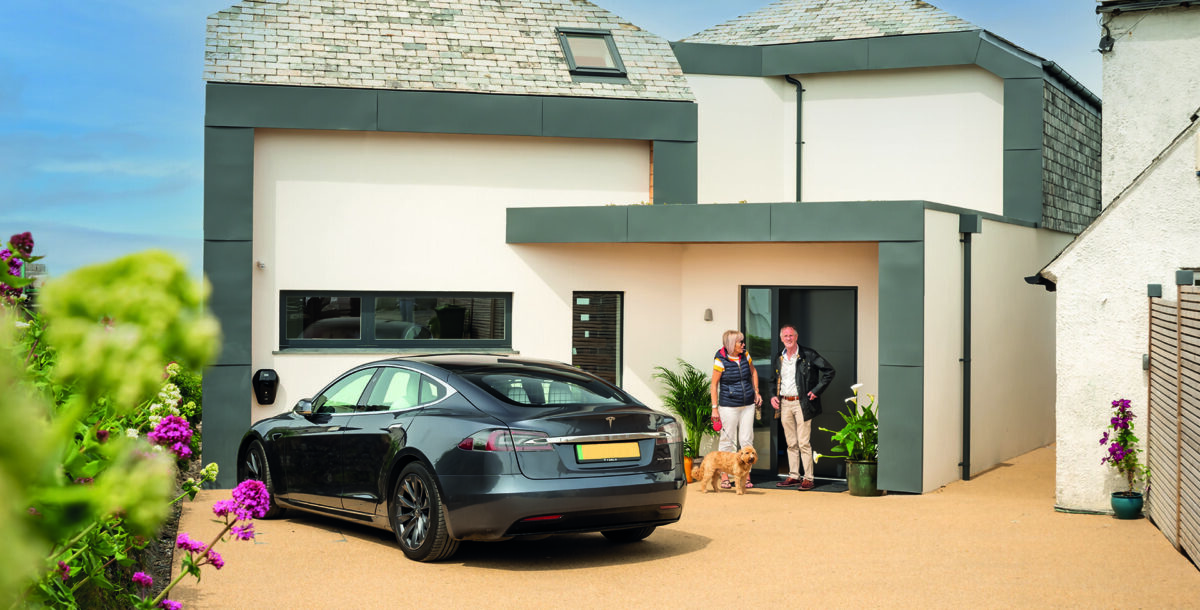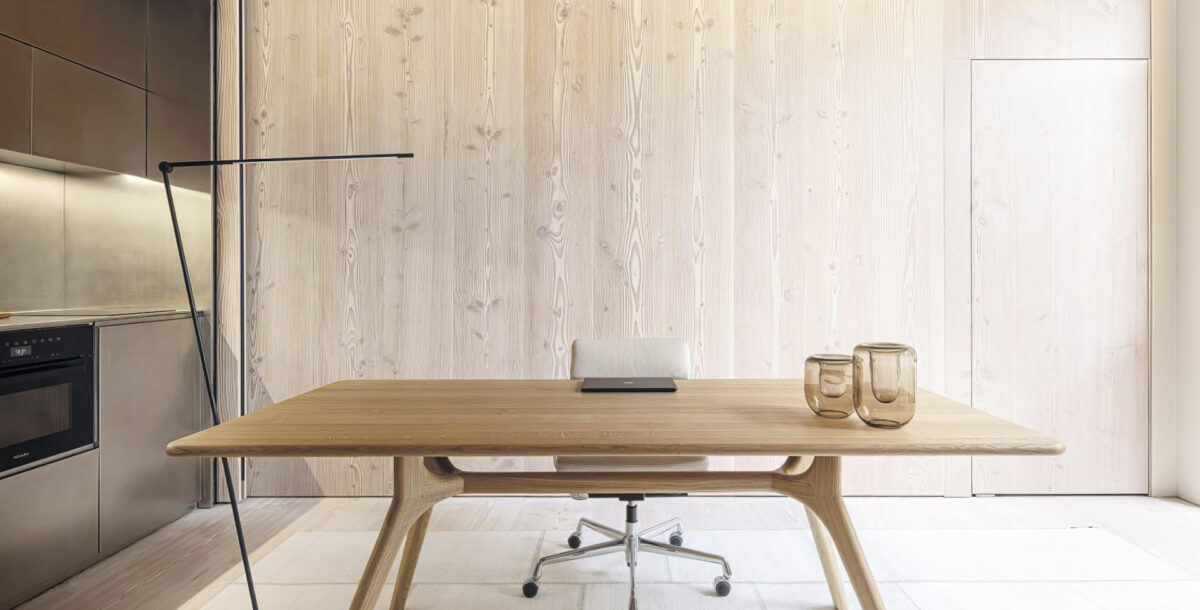Upcycled scaffolding planks extension
Architect Giles Bruce created this sustainable two-storey build using reclaimed materials
When extending a tiny kitchen for an environmentalist couple, Giles Bruce, director of A-Zero Architects, was tasked with completing the project using reclaimed materials. He came up with the idea of utilising recycled scaffolding boards for an eco-friendly extension.
How did the project come about?
Tom Gosling and Lulu Cox wanted to replace a tiny outrigger kitchen with a two-storey extension to their lovely house in a quiet corner of Whitechapel, east London. The couple are passionate environmentalists – Lulu runs a sustainably grown food, flower and events co-operative – so they were keen to incorporate as many reclaimed materials as possible. I suggested making the soul and structure of the extension from old scaffolding planks.
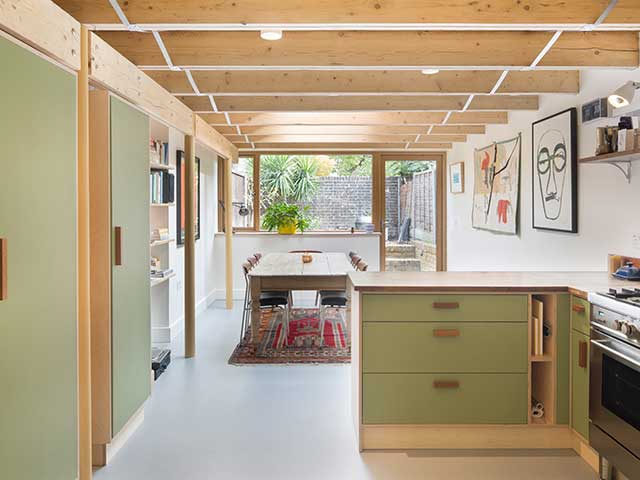
Photo: Agnese Sanvito
Where are they used?
The recycled scaffolding boards make up the frame of the eco-friendly extension, which includes a ground-floor kitchen-diner and a smaller first-floor level above with a bedroom. Steel columns help support the weight of the structure. The magic is that the width of the house is the same as the length of a scaffolding board, so the planks reach from party wall to party wall. I relied heavily on structural engineer Dan Fordham, who calculated the loading and worked out a simple way of splicing the planks together.
Did they need special treatment?
To make sure the boards were sound and knot-free with no signs of warping, the contractor, TBS, sourced and inspected each one. After years of use, the timber looked a little tired, but it was planed back to reveal the beautiful grain of the pine, then treated with a fireproof coating called Envirograf.
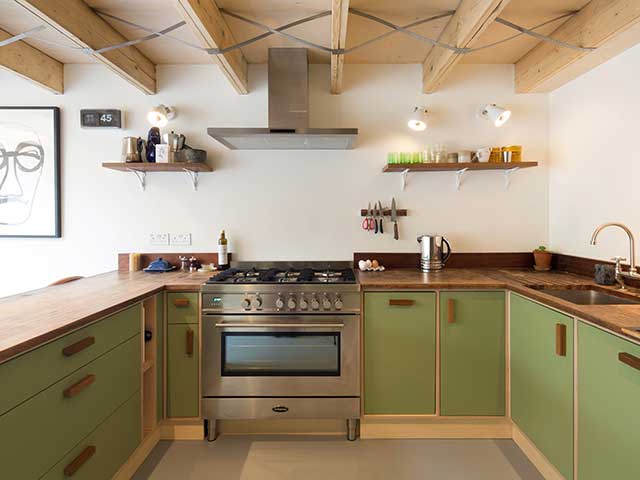
Photo: Agnese Sanvito
What about the cost of the eco friendly extension?
It was very economical. Old recycled scaffolding boards cost around £40 each and we needed 30 to complete the project. Savings were also made because the structure didn’t need complicated groundworks and Tom, a surveyor-turned-electrician, did the lighting design and wiring. With a limited budget it’s better to put money into things that will enhance the building – such as the exposed timber – rather than paying for hidden structures.
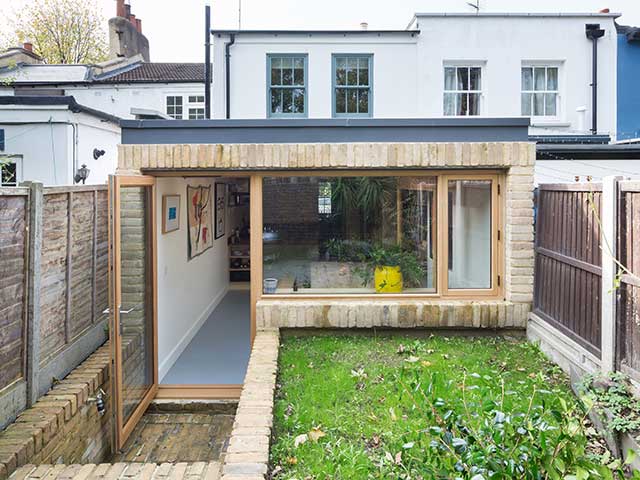
Photo: Agnese Sanvito
Are there any other recycled elements?
All the bricks liberated when the back of the house was rebuilt were reused on the exterior of the eco friendly extension and in the garden. The kitchen worksurfaces were made from a reclaimed science lab counter, and old curing boards from a cheese factory became the shelving. Working with found materials was exciting for everyone. The room has a lovely patina that you only get from materials that have been around for years. It gives the house a wonderful character.

